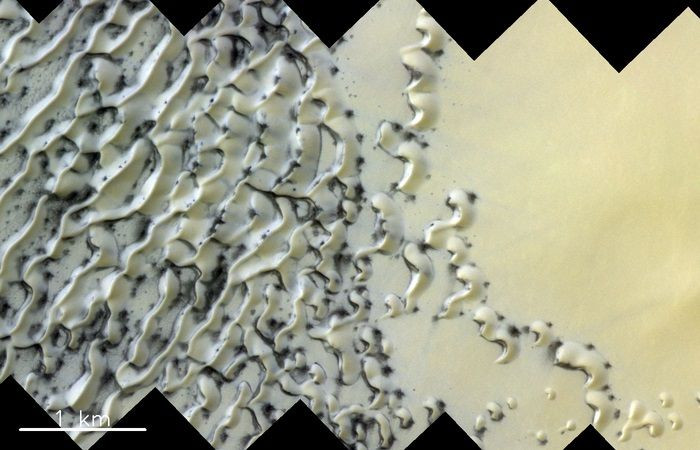NASA Mars Mission Shocker: Humans Won't Survive Red Planet

A NASA scientist recently shared that it might not be a good idea to move to Planet Mars and start a human colony there, adding that starting a new civilization on the Red Planet won’t be able to save humanity in the long run.
“I don’t think [moving to Mars] is a viable solution quite honestly. We add about half a million people to the population of this planet every day I can’t imagine a launch capability where we’re taking a half a million people off-planet every day,” NASA astronaut and physiologist Dr. James Pawelczyk said in a report.
Pawelczyk was commenting on SpaceX CEO Elon Musk’s grand vision of starting a new human civilization on Mars, saying that it is about time for life to be multi-planetary. Musk’s SpaceX Starship flip is currently on the last stages of its orbital flight, a major step toward the visionary’s goals of starting life on the Red Planet. Starship was intended to fly to both the Moon and Mars and then back to Earth to carry more space passengers.
Part of Musk’s grand space mission of starting a human colony on Mars is also one of the visionary’s way of “saving humanity.” During his speech announcing his plans roughly three years ago, Musk said: “I really think there are two fundamental paths [for humans]: One path is we stay on Earth forever, and some eventual extinction event wipes us out."
The NASA scientist, however, said that moving to Mars is not that easy and that it might not solve humanity’s problems in the long run.
“Based on what we have for current launch technologies we can’t possibly solve population problems here on Earth, so that means will continue to accumulate,” Pawelczyk said.
What’s more is that it’s going to be very difficult for humans to actually survive on Planet Mars. Earth’s cousin is a very dry, dusty and cold planet and its atmosphere only has one percent of the Earth’s density, with air that’s 95 percent composed of carbon dioxide.
Mars also has no magnetic fields like the ones on Earth that protect us. This means that the planet is susceptible to dangerous radiation from space. Mars is also known for its extreme temperatures and brutal storms so not only would it be difficult for humans to survive, but it’s also difficult to fathom how any life could still be existing there at the moment.
“Once we move outside the Van Allen belts - the magnetic field around our earth - then we're exposed to a much higher energy radiation forms. We also have the solar wind galactic cosmic radiation. And those really wreak havoc on the biology. When a high energy event hits DNA it pretty much shatters, and we don't have DNA repair mechanisms that can deal with that. So that's one of our big concerns for planetary exploration is how we shield from cosmic radiation.”
Despite his views on human survival on Mars, Pawelczyk believes that ongoing studies of colonies on Mars offer some valuable inputs that could be applied here on Earth, particularly about saving limited resources and turning to more sustainable forms of energy.
“What we can do is we can learn how to use more sustainable forms of energy,” he said.
© Copyright IBTimes 2024. All rights reserved.





















